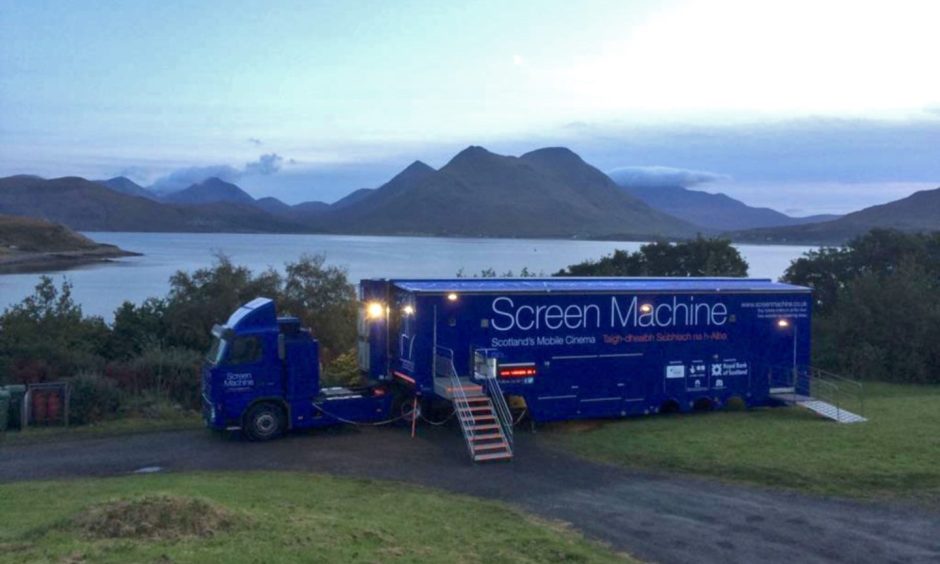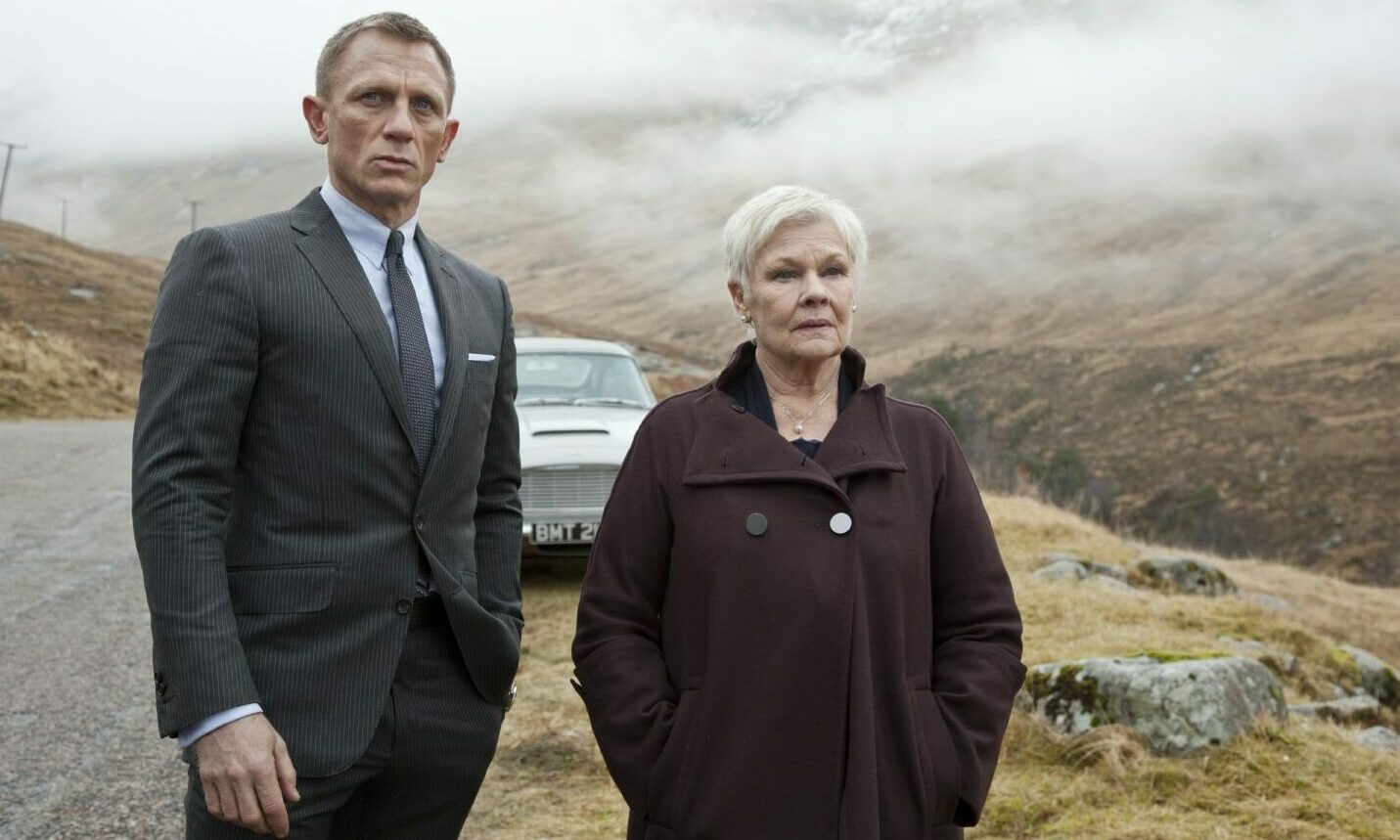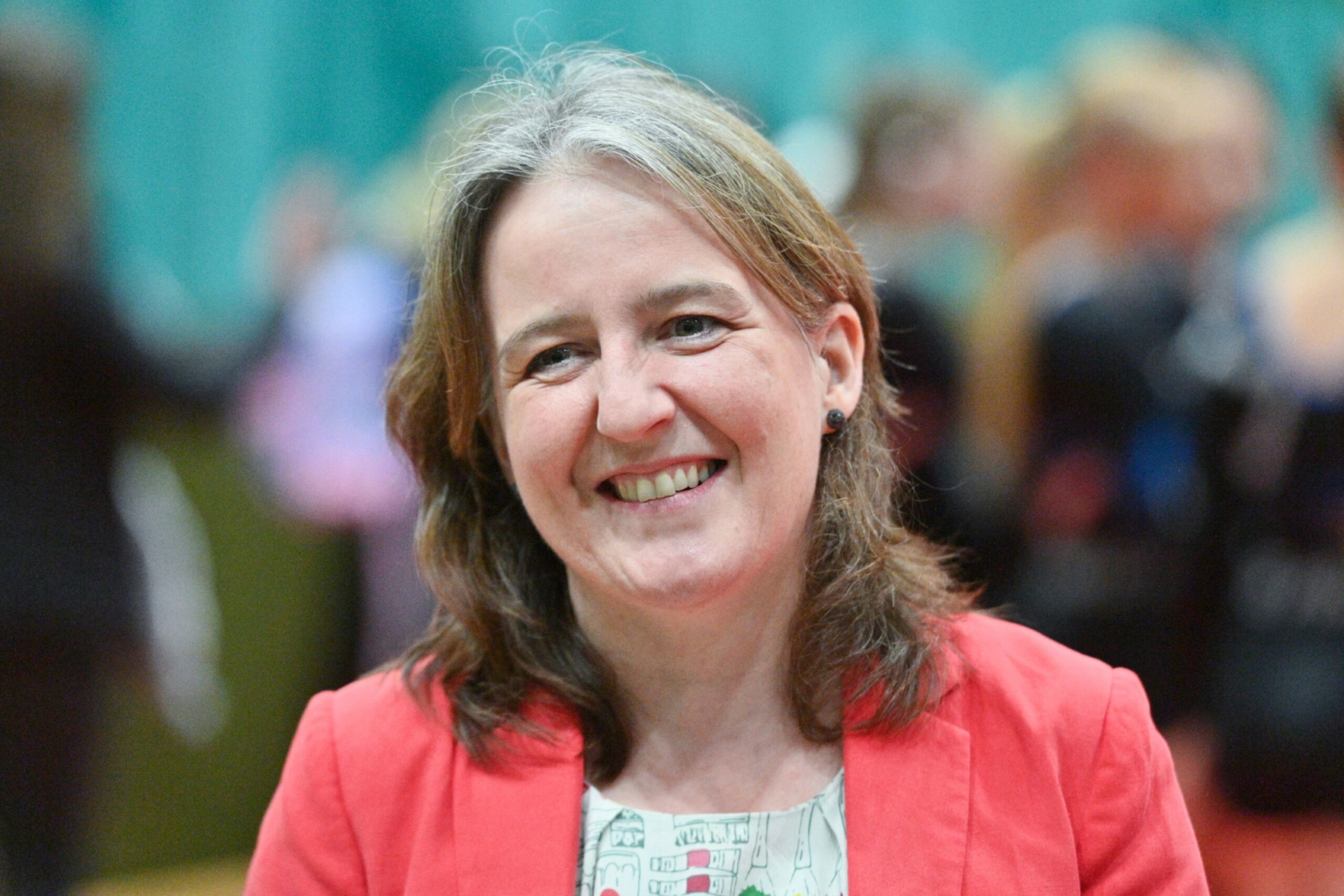
These are treacherous times for the arts and culture in Scotland.
But, if arguments are raging over council and government funding for cinemas, galleries, libraries, concert venues and other amenities in our big cities, just imagine the difficulties being faced by many people who live in the the Highlands and Islands.
Several music festivals, including Loopallu, are no longer on the calendar, while the plug was belatedly pulled on last summer’s inaugural Midnight Sun Weekender in the Western Isles. Eden Court, the premier arts venue in Inverness, has been forced to make financial cuts and other premises have followed suit.
Letter from M to FM
In the last week, Dame Judi Dench, the veteran star of such films as Mrs Brown and Shakespeare in Love, wrote to Humza Yousaf to highlight children’s concerns about the future of the mobile cinema, Screen Machine, which needs £1.4m for a new purpose-built vehicle to continue taking films across the north.
Pupils at Castlebay Community School in Barra asked for the James Bond franchise actress’ help in raising awareness about the situation, and she passed on their worries to the first minister, who has pledged to respond in due course.
But it’s an indication that, whether this facility is rescued for the long term or not, there are pressing issues which won’t be solved by any of Q’s cunning creations.
Labour MSP, Rhoda Grant, and the Scottish Government Minister for Social Care, Mental Wellbeing and Sport, Maree Todd, may have contrasting opinions on the constitutional future of their country, but both Highland politicians share common ground on the challenges for youngsters in search of jobs and homes in the region.
Mrs Grant told me: “Depopulation has been and will continue to be one of the largest issues that our rural areas face. It is vital the Scottish Government treats depopulation as a multipronged issue that affects health, housing, arts, education plus more.
Funding is always an issue
“While organisations such as MG Alba and Gaelic broadcasting provide high quality jobs, this could be replicated throughout the area. The Scottish Government could do more to ensure that Creative Scotland funding is evenly distributed across the country as currently it is mainly given to national and central belt organisations.
“This would ensure that not only our valuable culture is protected, but also our fight against depopulation.”
Mrs Todd replied that she understood the concerns, but argued that the Scottish Government was striving to transform the current situation.
She told me: “I absolutely recognise the importance of the arts in enabling communities to thrive. In the Highlands, we have a rich cultural heritage, with many of our young people involved in the likes of the Mod and Feis Rois.
“I volunteer at the Ullapool Book Festival and the Helmsdale Games every year and can see the positive contribution of these events on the social wellbeing of the community.
“For them to continue long into the future, we need our young people. But depopulation is one of the greatest threats facing my constituency [Caithness, Sutherland & Ross].
“As a low wage economy, it can be exceptionally difficult for young folk to get on the property ladder or even secure affordable rental accommodation in the Highlands. This can often drive young people to move to areas outside of the region.
“The shortage of high-quality job opportunities is another contributing factor. However, I am optimistic that we are now seeing a positive shift in my constituency, with opportunities arising from the Inverness and Cromarty Firth Green Port, which is expected to generate thousands of well-paid jobs.
New initiatives promised for Highlands and Islands
“The Scottish Government is also committed to stemming rural depopulation by increasing affordable housing stocks. By 2032, 110,000 affordable homes will be delivered across Scotland – with at least 10% in remote, rural and island areas.”
This is a bold ambition, which will require nearly 15,000 new houses to be built every year. But many youngsters have queried what “affordable” means – and have pointed out that the term is meaningless if banks won’t give them mortgages.
A recent Highlands and Islands Enterprise survey of more than 4,000 young people in the area revealed a startling statistic: that 47% of respondents between the ages of 16 and 29 said they plan to leave the Highlands and Islands within the next five years.
The reasons offered for this potential exodus included lack of housing, inadequate access to healthcare (particularly mental health care) and the dearth of modern [internet] connectivity. Yet there was also a common refrain: where is the art, the culture, the entertainment and variety to keep us occupied?
This is a genuine success story
John Morrison, the chairman of TV company MG ALBA, realises that youngsters have always ventured to pastures new, whether in Scottish cities or further afield. And there will be those with an inherent wanderlust who decide to leave their roots behind.
Yet he is convinced there are solutions and examples, even from the fashion in which his channel has spread its wings in recent years.
He said: “In 2022-23, Alba spent £12.3m on content, of which £9.8m was spent directly with 24 different production companies on the creation of 407 hours of programmes.
“For every pound of public funding investment, Alba has generated a return of £1.34 and created more than 340 jobs – nearly 200 of them in the Highlands and the Western Isles. This is not simply a handout – there is real potential to create an even greater return with further investment.”
Mr Morrison added: “One scheme that is working incredibly well is for young apprentices in North and South Uist and Lewis who have been given their first rung on the ladder in digital broadcasting through creative content apprenticeships run between local arts agencies and MG Alba.
“These young people can work in a cutting-edge industry while still being able to live (and work) in their local communities, and it’s a clear example of how we can help retain talent in the Highlands & Islands if we have the resources to do so.
“Our ambition is only limited by the budget we are given. Give us more income and we will create more jobs and Gaelic digital content.”
There has been a sharp decline
In myriad communities, residents have either reached the conclusion they will have to stage events through their own efforts (and cash) or nobody else will do it for them.
And award-winning author, Donald S Murray, whose new book The Salt and the Flame, charts the fortunes of those who left the Western Isles for the USA, has no doubt that arts and culture have significant problems which urgently need addressing.
He told me: “As someone who has been involved in the arts world across the Highlands and Islands, from Islay in the south all the way to Shetland, it has been obvious that, with a few notable and impressive exceptions, there has been a sharp decline both in standards and connections to the local community over the past decade or so.
“There are arts centres and other bodies, such as An Lanntair in Stornoway, Feisean Nan Gaidheal and a number of festivals and other events which have avoided this fall.
“There have been others, however, where the collapse has been almost precipitous. In the Western Isles, there has been a decline in the dramatic world – which sparked a great deal of interest in me as a youngster.
“In Shetland, the retreat has been more general. At one time, it was a vibrant location which provided a great deal of support and opportunities for young people and others within the community across the entire field of the arts.
Time for less navel-gazing
“Now, however, due to cuts in funding and an extremely guarded and defensive response to either criticism or comment, it provides little opportunity for individuals to either showcase their work or co-operate with others.
“We need to stop nurturing the art of navel-gazing and try once again to gain the attention of the wider world.”





